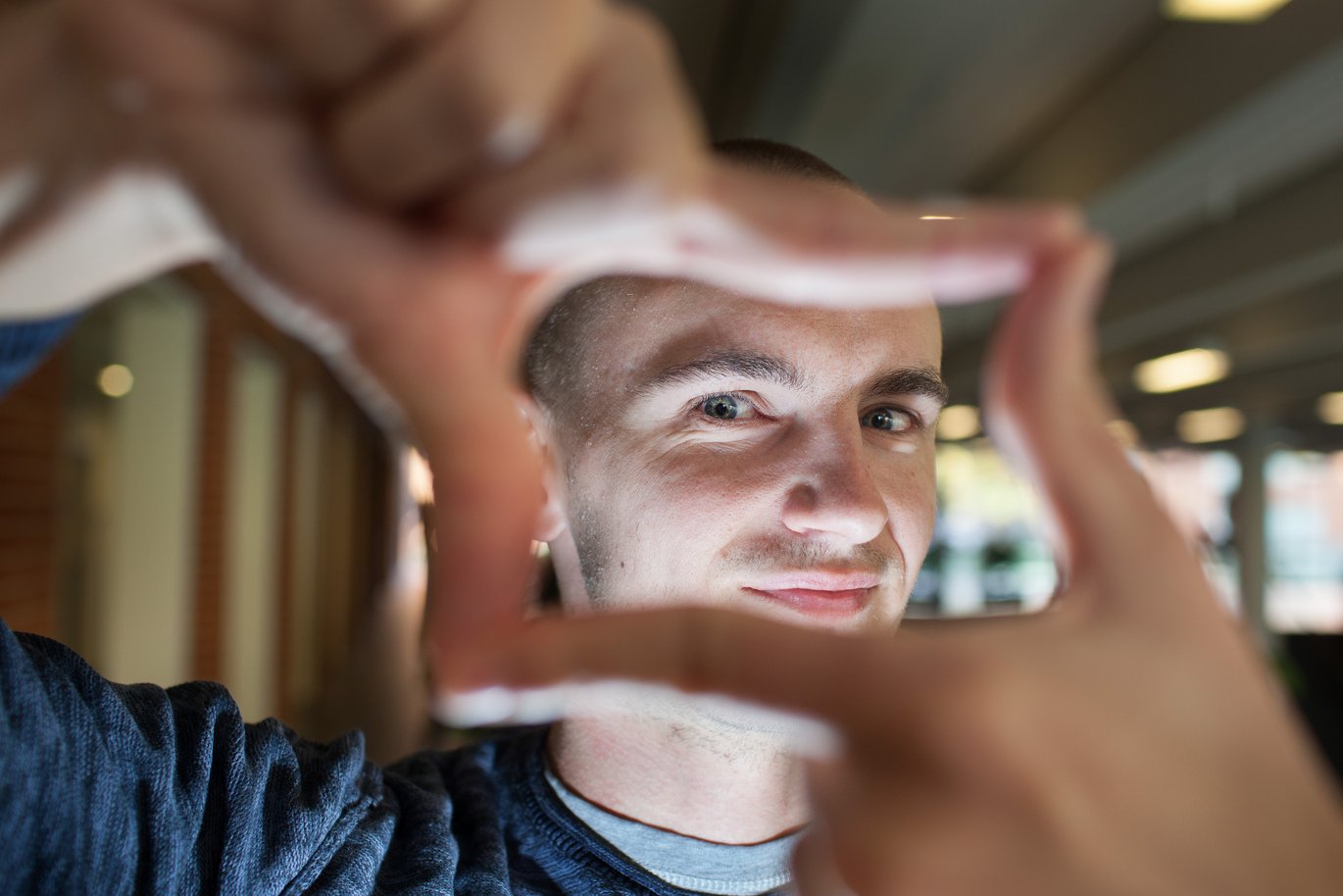More than just a grade
AU student Jens Kjeldgaard-Christiansen has just had a scientific article published in a recognised international journal. The article is based on his Bachelor's project. An unprecedented achievement according to the project supervisor, Assistant Professor Mathias Clasen.


English student Jens Kjeldgaard-Christiansen can see his name in print besides those of established researchers in the list of contributors to the latest edition of the international journal Evolutionary Behavioral Sciences. The article he has had published is based on the Bachelor's project he submitted in the spring.
Exceptional and unprecedented
The popcultural villain is antisocial
In his article “Evil Origins: A Darwinian Genealogy of the Popcultural Villain”, Jens Kjeldgaard-Christiansen examines the role of the villain in popular cultural works by means of evolutionary and social psychological theory and empirical data.
Mathias Clasen, who is an expert in the horror genre, explains what Jens Kjeldgaard-Christiansen’s article contributes to current research in the field:
"Jens concludes that there exists an universal villain culture with a basic structure that is linked to the way in which we, as humans, are constructed."
The popcultural villain is, among other things, characterised by an antisocial ethos that is rooted in human biology. Mathias Clasen explains:
"There is something fundamental in human beings which makes us believe that something is evil. We’re relatively egalitarian and don’t therefore care for dictatorship and other forms of dominance. We experience being prosocial as a good thing, and being antisocial as an evil. And this has a function in relation to strengthening hostility towards power hungry individuals."
So when the villain of popcultural films and literature is presented as being antisocial, this also contributes towards praising prosocial and egalitarian behaviour.
Academically interesting
But according to Mathias Clasen, Jens Kjeldgaard-Christiansen’s research is also interesting because it is interdisciplinary.
"This is a good example of how interdisciplinarity gives us an insight we would not have had otherwise. Jens uses evolutionary theories from social psychology and biology to say something about a humanistic topic, namely popculture. And that’s something that is academically interesting for us – either because we find it significant like I do, or because we find it really provoking. So he contributes to the debate on interdisciplinarity within the humanities and the question of whether research in the humanities should make use of approaches that are more natural scientific." (mga)
Jens Kjeldgaard-Christiansen has since begun his supplementary subject in psychology as a part of his Master’s degree programme. He is happy and not least surprised that it was even possible to get the article accepted in the peer-reviewed journal. The same goes for his supervisor on the Bachelor's project, Mathias Clasen, who is assistant professor of English at the Department of Communication and Culture.
"Getting his article published is really exceptional and unprecedented. I’ve never seen a student, not even at Master's degree level, write something that could be published in a scientific journal. It’s the exception rather than the rule to find students who are equipped to work with critical thinking and analysis at a sufficiently high level, at least in my experience. As a rule, the students are first ready to go to war after they’ve completed their studies."
Out of the ordinary
While supervising the Bachelor’s project, Mathias Clasen realised that Jens Kjeldgaard-Christiansen had the high quality required, and therefore suggested that he should focus on getting the article published.
"I had noticed Jens because his earlier assignments and his Bachelor's project were out of the ordinary," says Mathias Clasen.
Is it possible?
Jens Kjeldgaard-Christiansen was completely unaware that it was even possible for a student to publish. Certainly not for a student who had only just completed his Bachelor – with the best possible mark admittedly, but still.
"I didn't think they would take it seriously," he says.
But they did. The article has been peer-reviewed and accepted in exactly the same way as all the other contributions in the journal.
Not going to end up in a filling cabinet
Jens Kjeldgaard-Christiansen found it much more motivating to work on his Bachelor's project and subsequent article knowing that this work could result in a publication, which could in turn help his CV and thus the possibility of landing the PhD that he dreams of.
"It’s so much more motivating to know that the product isn’t just going to end up in a filing cabinet somewhere as soon as a lecturer has looked at it and given a mark. It’s been an intense and extremely rewarding process where I’ve been in the flow, to borrow an expression from the world of psychology. It just went well, I felt at home in the material, so you don’t notice the time," he says.
Demanding but manageable work
But it has also been hard work. After submitting the project he spent around a month adapting it to a scientific article while continuing his normal studies.
"The actual framework from the Bachelor’s project could actually be transferred pretty directly to the article, but I incorporated a bit more empirical data, expanded the analytical part, removed a criticism of other paradigms and changed the structure a little. It was demanding but manageable work," says Jens Kjeldgaard-Christiansen. He has now got a taste for more.
"I’ve definitely become aware of the possibility of publishing my future results and I’ve already started on the next article. It’s a really big motivational factor."
Read the article: “Evil Origins: A Darwinian Genealogy of the Popcultural Villain”
Translated by Peter Lambourne

